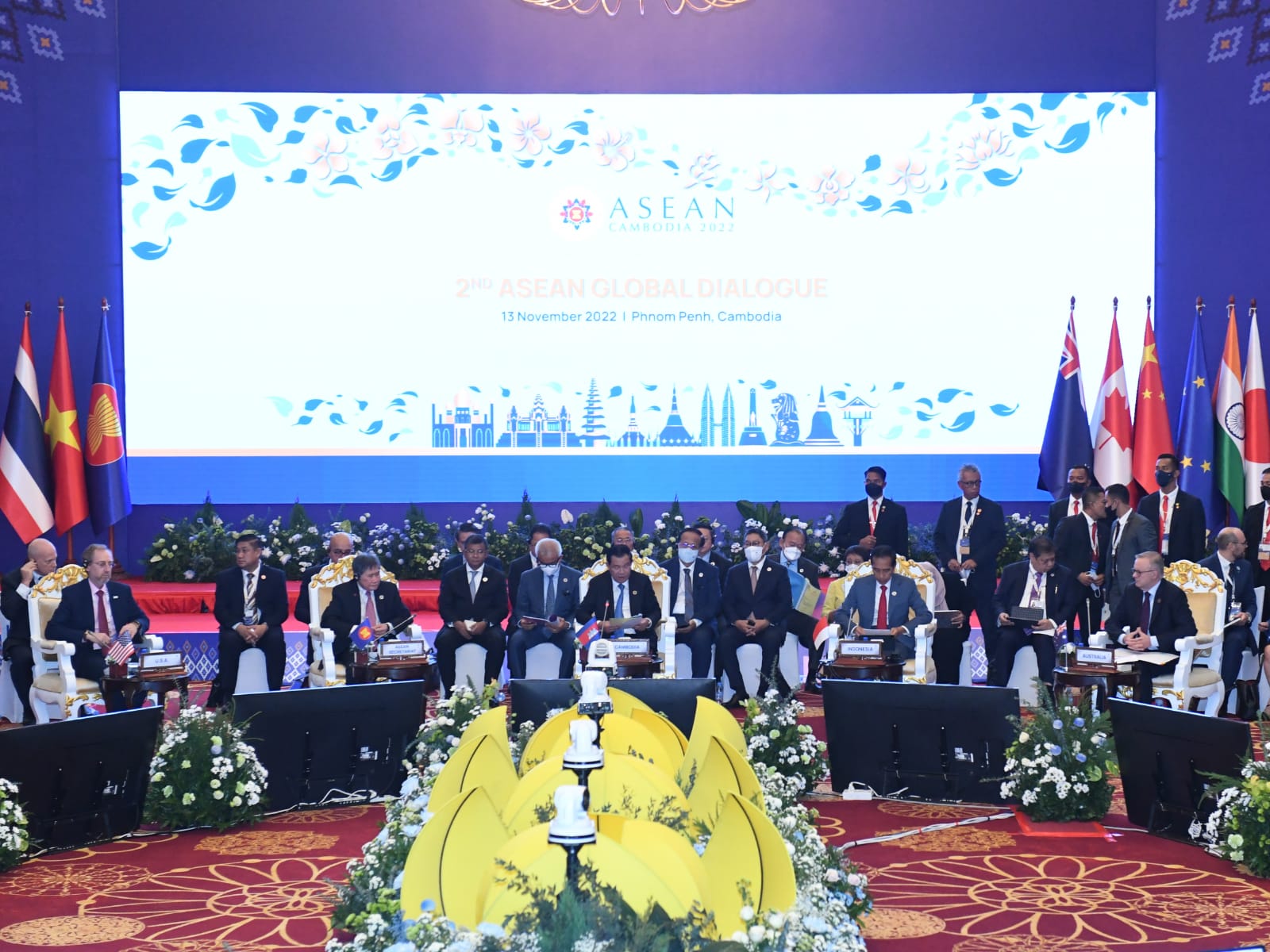President Jokowi Talks on Three Main Points to Face Economic Challenges in ASEAN

President Jokowi attends the 2nd ASEAN Global Dialogue: Post COVID-19 Comprehensive Recovery at the Sokha hotel, Phnom Penh, Sunday (11/13) (Source: BPMI of Presidential Secretariat/Kris)
President Joko “Jokowi” Widodo Sunday (11/13) talked on three main points for ASEAN to face the challenges of regional economic crisis.
“Although the average economic growth projection still recorded positive growth, but in the future, the challenges of regional economy will be even tougher amid the threat of recession. Thus, I would like to focus on three points,” the President said at the 2nd ASEAN Global Dialogue: Post COVID-19 Comprehensive Recovery at the Sokha hotel, Phnom Penh.
The three main points are as follows.
First, the strengthening of ASEAN fiscal frameworks. President Jokowi encouraged the importance of fiscal space for financial stability. The efficiency of expenditure and allocation for crisis impact mitigation programs and vulnerable groups must be a priority.
“Support for sectors that have an impact on region’s economy should also be prioritized. According to the Asian Development Bank (ADB), the identified sectors are tourism, agro-processing, and textiles. These sectors are vital considering that 90 percent of MSMEs in ASEAN are involved,” the President added.
Second, the strengthening of international financial support. President Jokowi underscored that international financial institutions play an important role in responding crisis and reducing the impact by providing flexible financial instrument.
“There is an emergency instrument that can be used during the crisis. The most important thing is that it is needed to provide preventive instrument. This support is vital for ASEAN to anticipate the worsening of the crisis in the future. One of the ways is strengthening financial infrastructure in the region including strengthening synergy of financial policy,” the President added.
Third, world trade must be regulated based on the consideration of development right of developing countries. President Jokowi noticed that developing countries face difficulties in carrying out downstreaming.
“Do developing countries receive fair profits by exporting raw materials? The answer is no. To that end, developing countries continue to fight for the right to downstream,” he said.
Concluding his introduction, President Jokowi reiterated the importance of collaborating closely and working together to deal with the current crisis. (BPMI of Presidential Secretariat/AIT) (AP /MUR)








